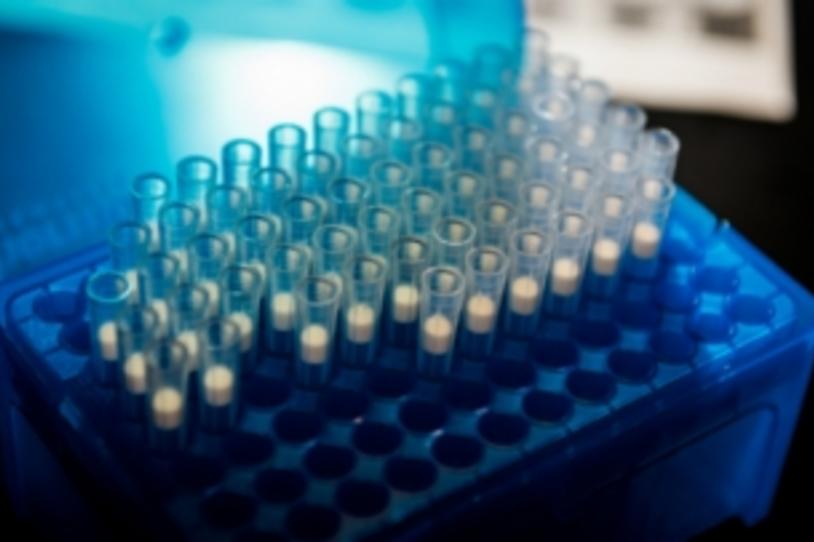
The Michael J. Fox Foundation for Parkinson's Research (MJFF) announces 39 new grant awards totaling more than $10 million. The selected projects reflect our research strategy to define, measure and treat Parkinson’s disease. We also awarded grants to help develop the research tools the field needs to advance.
All of our funding decisions serve our mission to find a cure for Parkinson’s and improved treatments for those living with the disease today. Each research step — from laboratory studies to understand the disease through clinical trials of potential drugs to stop it — is designed to support those goals. Highlights of the studies that received our latest grants follow. For more information on recent MJFF-supported projects, visit our Funded Studies page.
Define
We seek to understand the causes of Parkinson’s, its progression and the factors that account for the variability of the disease. We recently issued seven new grants in this area at a total of $3,387,710. Highlights follow:
- Mutations in the GBA and LRRK2 genes can cause Parkinson’s, and drugs against these targets are already in clinical trials. Dimitri Krainc, MD, PhD, of Northwestern University is following up on findings of biological overlap that may mean that drugs against one target could help carriers of the other mutation.
- Two other projects are characterizing targets in the alpha-synuclein pathway. The protein alpha-synuclein clumps together in Parkinson’s, which scientists believe is toxic to cells. Maria Xilouri, PhD, from the Academy of Athens is investigating chaperone-mediated autophagy, a process that targets and transports excess or damaged proteins for break-down. Irene Griswold-Prenner, PhD, at Nitrome Biosciences is examining synuclein nitrase, which plays a role in alpha-synuclein aggregation and could be a new drug target.
Measure
MJFF funds the discovery of methods to diagnose Parkinson’s, measure its progression and assess the effectiveness of treatments for it. We recently supported 19 new projects in this area with a total of $4,720,039. Descriptions of several of the grants follow:
- Four grants are through our Epidemiological Parkinson’s Risk Factors funding program. Three are combing medical databases for associations between treatments for other conditions and lower Parkinson’s risk. This work could point to drugs with repurposing potential for Parkinson’s disease. Another is comparing dietary patterns for effect on Parkinson’s onset and progression.
- Wilma D.J. van de Berg, PhD, from VU University Medical Center in the Netherlands is correlating MRI scans, brain changes, and memory and thinking assessments to develop imaging markers of cognitive decline.
- Larsson Omberg, PhD, at nonprofit Sage Bionetworks is developing data challenges with digital sensor data from MJFF-supported studies. This project will set up challenges asking data scientists to analyze smartwatch and smartphone data to determine measures of Parkinson’s symptoms and severity.
Treat
These awards directly fund the development of treatments to slow or stop Parkinson’s and alleviate its symptoms. We recently gave four new grants in this area at a total of $1,670,105.
- Eilís Dowd, PhD, from the National University of Ireland Galway is testing if specially designed biomaterials can help cell replacement therapy. This therapeutic approach implants dopamine cells in the brain to replace those lost in Parkinson’s disease but can face challenges. Adding biomaterials to the cells could help them survive after transplant.
- Two newly funded projects are testing drugs against emerging targets. Pamela England, PhD, at the University of California, San Francisco is optimizing a compound against the protein Nurr1, which plays a role in the survival of dopamine neurons. Daniel Ory, MD, at Casma Therapeutics is developing drugs against calcium channel TRPML1, which helps degrade excess or damaged cell parts. Targeting TRPML1 may avoid toxic protein build-up seen in Parkinson’s.
- Marc Caron, PhD, at Duke University is testing a new approach to stop dyskinesia, uncontrolled movements that come with long-term disease and levodopa use. He’ll look for therapies that stop the process that causes this side effect.
Tools
We ensure the field has the research tools it needs to advance, such as assays, cells lines, and DNA plasmids. We recently supported nine new projects in this area with a total of $396,412. Highlights follow:
- Six grants went to contract research organization Abcam to develop antibody tools. Antibodies can assist in many types of laboratory experiments to detect and measure different cell parts.
